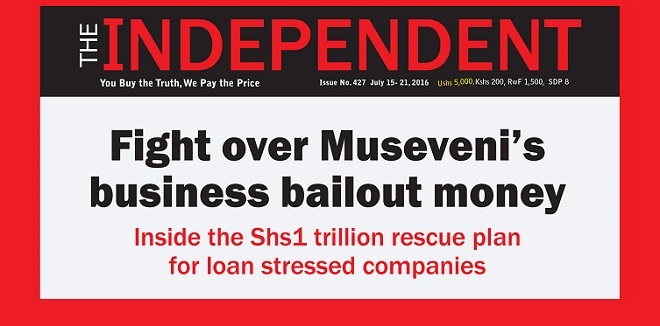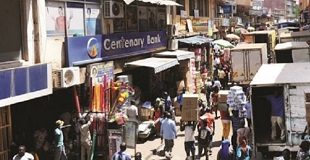
COMMENT: Nimrod Muhumuza
After years of touting of Uganda’s positive economic growth in flowery language, citing growth in the manufacturing and real estate sector, and reduced poverty and inflation statistics, it is now emerging that the government is contemplating forking out over Shs1 trillion to relieve over 100 companies facing crippling debt.
It is the latest, albeit most costly, indication that the fundamentals of economic stability are not holding despite insistent claims to the contrary. Contemplation of this latest proposed intervention is made all the more poignant because of the memory of the government’s arrogant and contemptuous response to the severe, if temporary economic crisis, in the aftermath of the 2011 elections. Inflation soared to over 30%, and high interest rates triggered defaults and foreclosures not seen before. Ordinary businesses suffered extraordinary losses and consumers paid high prices. The clamour for government reprieve by civic and political leaders was quelled using unmitigated state force. In contrast, the move now by a cabal of moneyed fat cats to grab another opportunity to dip into the public purse to rescue themselves from their own financial missteps is doubly egregious.
Of course bailouts are not new or unique to Uganda. In fact they are an internationally recognised, if temporary, ‘solution’ to corporate insolvency. The arguments for a bailout are three pronged: that these companies make direct and indirect contributions to public coffers through taxation, that they employ hundreds if not thousands of Ugandans, and that they are important cogs in the overall production value chain. Failure of one of them would prompt an adverse domino effect on other sectors of the economy.
Those are not the arguments being made in this case. In fact no arguments have been put forward given the characteristic translucence with which the negotiations are being conducted. This is despite the fact that Shs1 trillion represents nearly 5% of proposed budgetary expenditure for this financial year. Authorities appear to be attempting to clothe with legitimacy, through officialdom, an illegal practice of corporate rescue that goes all the way back to President Yoweri Museveni’s confidant Hassan Basajjabalaba’s Government-backed guarantees to fund his private businesses.
At the very least, this move should obligate the approval and oversight of Parliament, if only for cosmetic purposes as has been the case with countries that took to bailouts to stabilize their economies in the aftermath of the 2008 financial collapse.
The state is the great fictitious entity by which everyone seeks to live at the expense of everyone else
Even before the bailout is considered, it must be demonstrated that all the proposed beneficiaries are deserving: what criteria is being employed to determine who should be rescue and who should drown; have all other alternatives been taken into account? Uganda recently enacted a new insolvency legal regime. This would be a perfect opportunity to test the efficacy of these new laws. Talk of recapitalisation of Government-owned institutions such as the Uganda Development Bank and The Microfinance Support Centre has also fizzled out.
Although reported to be against the proposed bailout, the Central Bank and Ministry of Finance are not entirely without blemish. Reports indicate that the non-performing assets owed by some of these companies represent over 8.2% of total bank assets imperiling the entire financial system. An over-leveraged financial sector poses direct economic, political and social consequences for all involved if the 2008 collapse is anything to go by. If continued unchecked, Ugandans might find themselves contending with the even higher cost of more bank closures and further bailouts.
Any bailout should account for a number of principles – some borrowed from recommendations authored by top economists to the then U.S. Congress that was contemplating its own bailout in the throes of the 2008 madness. It must seek to stabilise the economy; it should improve liquidity; and it must be a comprehensive strategy intended to address the root cause of the turmoil.
Instead, Ugandans have an unfair, incomprehensible plan and an ambiguous strategy with no clear mission that is intended to subsidise investors, some who are top regime honchos, at taxpayers’ expense.
*Nimrod Muhumuza is a lawyer
***
editor@independent.co.ug
 The Independent Uganda: You get the Truth we Pay the Price
The Independent Uganda: You get the Truth we Pay the Price


